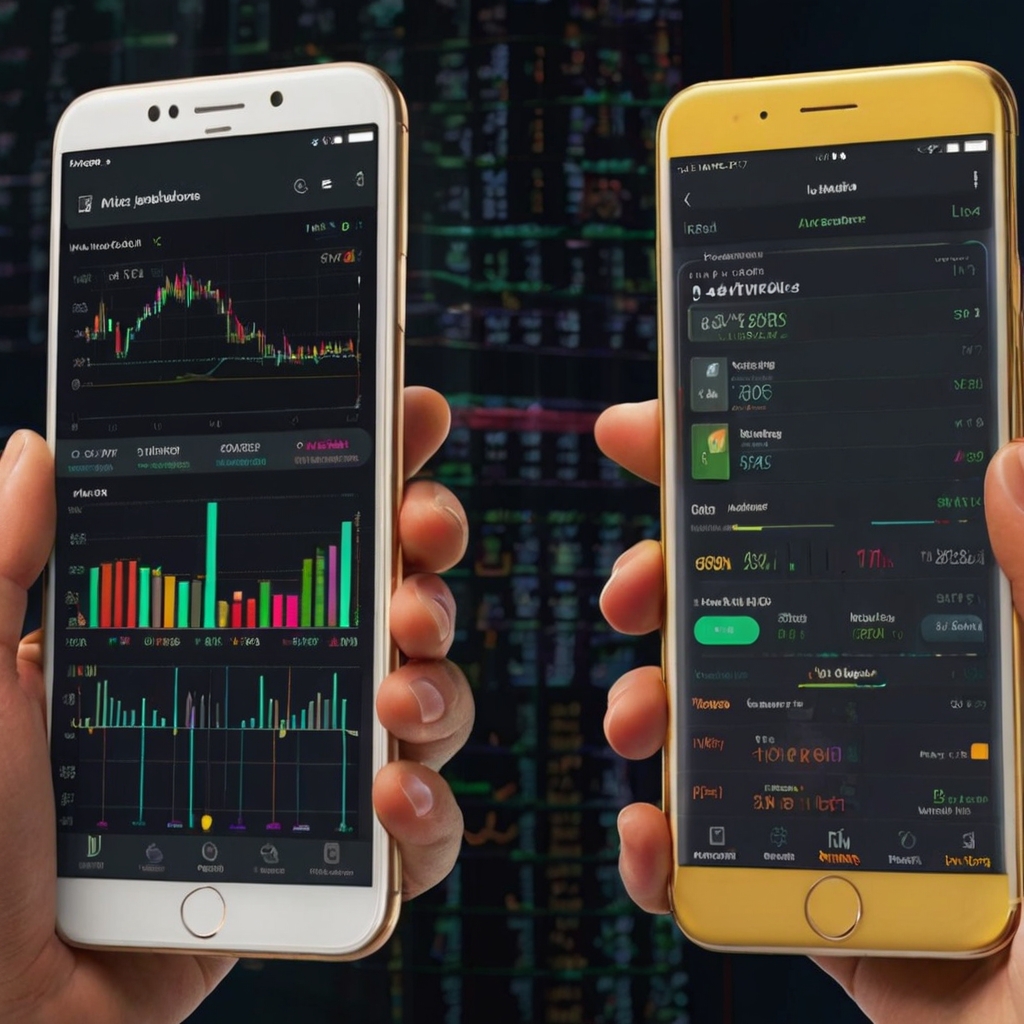In today’s fast-paced world, trading apps have become essential for investors. They offer convenience and real-time access to financial markets. With many options available, choosing the right app can be challenging. This article explores some of the best trading apps for 2025, highlighting their features, pros, and cons.
1. Fidelity
Fidelity is renowned for its user-friendly interface and comprehensive research tools. It caters to both beginners and experienced traders. The app provides commission-free trades for stocks and ETFs, making it cost-effective. Additionally, Fidelity offers a wide range of investment options, including mutual funds and retirement accounts. Its educational resources are top-notch, assisting users in making informed decisions. However, some users have noted that the app lacks a dedicated mobile platform for active trading.
2. E*TRADE
ETRADE is celebrated for its robust trading features and intuitive design. The app offers a variety of investment options, such as stocks, options, and mutual funds. Its educational content is extensive, aiding beginners in understanding market dynamics. The Power ETRADE platform is particularly beneficial for active traders, providing advanced charting tools and real-time data. However, some users find the fees slightly higher compared to other platforms.
3. Webull
Webull is a popular choice among new and intermediate traders. It offers commission-free trading for stocks and ETFs, along with real-time market data. The app’s interface is sleek and user-friendly, making navigation seamless. Webull also provides extended trading hours, which is advantageous for traders looking to capitalize on after-hours market movements. However, it lacks access to mutual funds, which might be a limitation for some investors.
4. TD Ameritrade
TD Ameritrade stands out with its comprehensive educational resources and advanced trading tools. The app supports a wide range of investment products, including stocks, options, and futures. Its thinkorswim platform is highly regarded among active traders for its advanced analytics and charting capabilities. Additionally, TD Ameritrade offers virtual trading, allowing users to practice strategies without real risk. On the downside, the platform does not offer fractional shares, which might be a drawback for some investors.
5. Merrill Edge
Merrill Edge is known for its high-quality research and integration with Bank of America accounts. The app offers commission-free trades and a variety of investment options. Its educational resources are well-organized, providing valuable insights for beginners. The Stock Stories and Fund Stories features present information in an easily digestible format. However, Merrill Edge does not support cryptocurrency, futures, or forex trading, which might limit some investors.
6. Robinhood
Robinhood has gained popularity for its simple interface and commission-free trades. It offers a range of investment options, including stocks, ETFs, and cryptocurrencies. Recently, Robinhood has introduced advanced trading tools to cater to more sophisticated investors. These include the ability to trade futures and index options, along with a new web-based platform called Robinhood Legend. This evolution responds to the growing demand from retail investors for more advanced trading tools and strategies. However, the platform has faced criticism in the past regarding customer support and trade execution quality.
7. Revolut
Revolut, a fintech company, has recently entered the trading arena. With a UK trading license obtained in late 2024, Revolut plans to offer trading of UK and EU-listed stocks and ETFs starting from 2025. This move positions Revolut to compete with established UK trading companies. The app is known for its user-friendly interface and integration with various financial services. However, as a new entrant in the trading space, it remains to be seen how it will perform compared to established platforms.
8. Acorns
Acorns is a micro-investing app ideal for beginners. It uses a rounding system to automatically invest your spare change, making investing effortless. The platform offers a variety of investment options, including stocks, bonds, and ETFs. Acorns also provides educational resources to help users learn more about investing. However, its investment options are limited compared to other platforms, and it charges a monthly fee, which might not be cost-effective for all users.
9. Zacks Trade
Zacks Trade offers access to a rebranded version of Interactive Brokers’ trading platforms. It provides a wide range of investment options and robust research tools. The platform is suitable for advanced traders, offering customizable charts and alerts. However, Zacks Trade charges commissions for stock, options, and ETF trades, and has a minimum account requirement, which might deter some investors.
10. TradeStation
TradeStation is known for its advanced trading tools and professional-grade platform. It offers a variety of investment options, including stocks, options, and futures. The platform provides extensive charting capabilities and real-time market data. However, TradeStation’s fee structure can be complex, and it may not be the best choice for beginners due to its advanced features.
